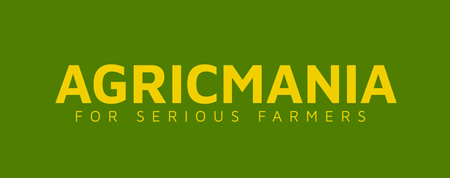Farmers in Sub-Saharan Africa are particularly vulnerable, in part because they mostly rely on rain-fed agriculture instead of irrigating. In Zimbabwe, the rainy season typically lasts from November through April, after which the weather becomes too dry to support growing crops.
Every year, farmers need to produce sufficient food from their single annual harvest to feed their families until the next farming season. In good years, farmers have enough grain left over to sell as income, but when crops fail, families often experience an annual "hunger season," a time of meal skipping and substitution until the next harvest.
These once predictable growing cycles are at risk from climate change, and smallholder farmers, who are dominant in Zimbabwe, are on the front lines. The impact of climate change has now stretched to seed-making companies. This comes as advisory firm IH Securities noted that climate change remains one of the major challenges affecting SeedCo Ltd’s performance.In its financial year ended 31 March 2022, ZSE-listed seed manufacturer SeedCo Limited posted a before-tax profit of ZWL$550.5 million in inflation-adjusted terms.
A tax charge of ZWL$1.2 billion dragged the group into a post-tax profit loss of ZWL$650.5 million, down from ZWL$1.43 billion in the previous year. Revenue shrank by 8% in inflation-adjusted terms to ZWL$9.3 billion. The group’s third quarter trading update warned of declining sales volumes due to the late rainfall season experienced in 2021. At the time, the group noted that in the 9 period, maize and wheat seed sales were down 20% and 6%, respectively.
Looking ahead, the group noted the challenges presented by the Zimbabwean economy, adding that it did not expect any positive change in the short term. However, the group also stressed that it was well positioned to benefit from trends expected to shape the long-term future of Zimbabwe’s agricultural sector – such as the need for increased food production and import substitution. Commentary and Analysis: It's a set of financials that line up with the operating environment facing SeedCo Limited.
With the group’s primary business in maize seed, the late rainfall translated into a moderate decline in sales revenues. Delayed payments from government schemes in an inflationary environment are likely to result in significant value loss. Additionally, the socio-economic significance of maize probably meant that the group’s product pricing could match inflation while operating expenses were more responsive. Hence the mismatch in the severity of decline between the group’s top and bottom lines. For most of the recent past, doing business with the government has been fairly beneficial for SeedCo Limited.
The group’s Zimbabwean operations have earned their highest revenues and profits in years when the government has implemented wide-scale agricultural support schemes. The reduced purchasing power of the government in the post-dollarization years has seemingly made the schemes less rewarding. To its credit, the group has local operations that are geared towards more market-oriented agricultural activities in horticulture through its interest in Prime Seed Zimbabwe. The immediate problem is that the current economic environment stands to limit the potential of the venture.
The structural problem is that Zimbabwe’s agricultural sector is driven by small-scale producers who are generally ill-equipped to exploit high-value horticultural production in mass. Over time, small- scale agriculture may gradually evolve towards high-value horticulture, but that leaves SeedCo’s immediate and long-term prospects heavily tied to government agricultural policy. On the flip side, the current government's agricultural policy appears to be heavily tied to SeedCo Limited. This dynamic might be a useful lens to view the recent move to consolidate the operations into SeedCo International and the decision made by the authorities to block the move. The signaling in the financial statements suggests some frustration brewing at SeedCo. The hope will be that it leads to improved dealings with the government.



